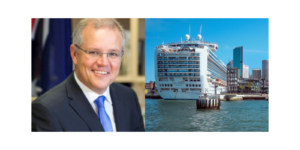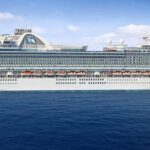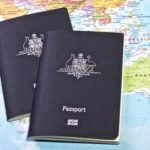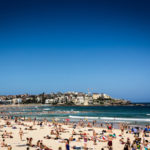Government’s ‘Crucial Errors’ Contributed to Ruby Princess Disaster, Report Finds

A Federal report into last year’s Ruby Princess disaster which unleashed COVID-19 onto Australian shores has found that critical errors were made, because of systemic problems within the Federal Department of Agriculture.
In the report, the Commonwealth’s Inspector-General of Biosecurity found the Department of Agriculture made a number of crucial errors, including failing to follow protocols or to interview sick passengers.
“If agriculture had administered the Traveller with Illness Checklist in the way intended, passenger disembarkation could have been appropriately managed to minimise the human health risk,” the report stated.
“This was a crucial error.”
“If the Acute Respiratory Diseases log had been viewed on the morning of the 19 March, it would have been noted that the log had not been updated since 17 March,” the report continued.
“This should have prompted contact [with authorities]”
The report also found that authorities failed to interview the ship’s master or inspect the vessel’s medical logs.
It further found there had been years of systemic problems in the Department of Agriculture as well as missed opportunities for change, These issues had been highlighted in a 2018 internal audit of biosecurity protocols for arriving ships, and recommendations had been made for change at that time.
The Report concluded that the likelihood of the Ruby Princess incident occurring would have been greatly reduced if the department had done what it agreed to do after the audit.
Twenty-eight deaths and more than 600 COVID-19 cases were later recorded amongst passengers and crew.
NSW inquiry delivered similar findings last year
Other inquiries have reached similar conclusions, including one commissioned by the New South Wales State Government and led by experienced Sydney barrister Bret Walker.
The Walker Report found that NSW state health officials made “inexcusable”, “inexplicable” and “serious mistakes’ in the way the Ruby Princess was handled, specifically by assessing the ship passengers as “low risk”, and to “do nothing” despite all the expert advice at hand.
The Walker investigation also brought to light the fact that Department of Agriculture officers did not follow proper processes when inspecting the Ruby Princess, which led to the Federal investigation.
Ministers continue to shift the blame
In the wake of the Commonwealth Inspector-General of Biosecurity’s findings, Federal Agriculture Minister David Littleproud conceded his department could improve, but said it was not ultimately to blame.
“In essence, the Ruby Princess was a failing of NSW Health,” Mr Littleproud said.
national protocol, which sparked the special investigation into the Department of Agriculture.
His comments relate to the fact that NSW Health officials had deemed the Ruby Princess low-risk the day before it arrived based on health information that had become out-of-date.
If the most recent illness numbers had been brought to NSW Health’s attention, it may have changed its low-risk rating of the cruise ship.
Criminal investigation
After the disaster was contained last year, New South Wales Police Commissioner Mick Fuller said he had launched a criminal investigation.
He told media in February this year that there could still be criminal charges laid over the Ruby Princess fiasco and also a potential coronial inquest.
There has been no further news of progress on either front and, to date, despite the New South Wales and the Federal investigations, no one has been held accountable.
Criminal negligence is a charge that could potentially be brought against those responsible for the disaster.
The offence is contained in section 54 of the Crimes Act 1900 (NSW) and carries a maximum penalty of 2 years in prison.
Same people at the helm
At this time, of course, there are no international passenger ships coming into Australia for the foreseeable future, but it has to be noted that the people who were in charge of managing the pandemic during the crisis caused by the Ruby Princess, are still the very same people we have in charge now, managing the outbreak of Delta, which is much more contagious.
Their credentials have been marred by significant failings which, according to experts, could have been avoided.
These are mistakes which have cost lives, and have cost time, resources and taxpayer dollars to investigate, and yet the general public is expected, in spite of this, to continue to have faith in their ongoing ability to manage the pandemic successfully.
In the meantime the families of survivors and other passengers of the infected cruise ship have launched a class action against Carnival, the company which owned and operated the Ruby Princess.
The case is due to be heard in court next year.







